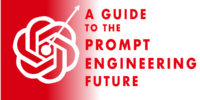Welcome to the fascinating world of quantum programming! As quantum computing continues to push the boundaries of classical computation, diving into quantum software development opens up a realm of possibilities. This quickstart guide aims to provide you with essential tips to embark on your quantum programming journey.
1. Understand the Basics of Quantum Computing
Before delving into quantum programming, grasp the fundamentals of quantum computing. Learn about qubits, superposition, entanglement, and quantum gates. A solid foundation in quantum mechanics is key to effective quantum programming.
2. Explore Quantum Programming Languages
Get acquainted with quantum programming languages like Qiskit, Quipper, and Cirq. These languages are specifically designed for quantum computing and provide the necessary tools to develop quantum algorithms. ️
3. Start with Simple Quantum Algorithms
Begin your journey by implementing simple quantum algorithms. Grover’s algorithm and the Quantum Hello World program are excellent starting points. This hands-on experience will help you understand the unique aspects of quantum computation.
4. Learn Quantum Circuit Design
Master the art of quantum circuit design. Quantum circuits are the building blocks of quantum algorithms. Understand how to arrange quantum gates to perform specific computations and achieve desired outcomes. ⚙️
5. Experiment with Quantum Entanglement
Quantum entanglement is a fundamental quantum phenomenon. Experiment with creating entangled qubits and explore how changes in one qubit affect its entangled counterpart. This is a crucial concept in quantum programming.
6. Grasp Quantum Error Correction
Quantum computers are susceptible to errors due to environmental factors. Learn the principles of quantum error correction to mitigate errors and enhance the reliability of your quantum algorithms. ️
7. Engage with Quantum Cloud Services
Explore quantum cloud services offered by companies like IBM Quantum and Rigetti. These platforms provide access to quantum computers over the cloud, allowing you to run your quantum programs on real quantum hardware. ☁️
8. Stay Updated on Quantum Hardware
Keep a close eye on advancements in quantum hardware. As quantum processors evolve, understanding the capabilities and limitations of the latest hardware is crucial for optimizing your quantum programs.
9. Join Quantum Communities and Forums
Connect with the quantum programming community. Join forums and discussion groups where quantum enthusiasts and experts share insights, discuss challenges, and offer guidance. Community support is invaluable in the quantum realm.
10. Experiment, Iterate, and Innovate
Quantum programming is a journey of exploration. Embrace experimentation, iterate on your algorithms, and be open to innovation. Quantum computing is a rapidly evolving field, and your creativity can contribute to its growth.
Conclusion
Congratulations on embarking on your quantum programming quickstart! By understanding quantum computing basics, exploring quantum programming languages, starting with simple algorithms, mastering quantum circuit design, experimenting with entanglement, grasping error correction, engaging with quantum cloud services, staying updated on hardware, joining communities, and fostering a spirit of experimentation, you’re well on your way to becoming a quantum programmer extraordinaire. May your quantum adventures be both challenging and rewarding!








